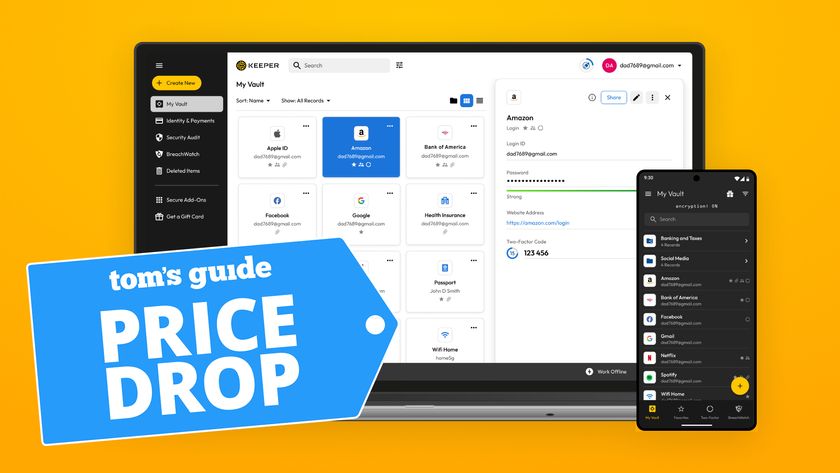How to choose a web hosting service
It can be easier to find the right host when you know what to look for

To choose a web hosting service is an incredibly key decision to make when you're setting out to build a website. Choosing from one of the best web hosting services, as with choosing one of the best website builders, is integral: your chosen host is responsible not just for your site staying online, but also for providing you with flexibility, so that you can modify and grow your website over time.
It can be rewarding to choose a web hosting service that works perfectly for your site, and equally, picking the wrong host can be severely damaging to your business. If a host can't meet your site's needs, you could end up wasting more time and money you don't have to start your search again.
Consequently, knowing what you should be looking for when you choose a web hosting service is the right way to go. We cover seven key points here that you should consider in order to find the right host for your website.
1. Type of hosting offered
Most hosting providers offer multiple types of services. For a new website with relatively modest traffic, shared hosting can provide a low-cost option. But if you need more bandwidth, or need additional computing power to run software on your website, look for options like VPS (virtual private server) and cloud hosting.
You will also want to consider whether they offer managed hosting or unmanaged hosting. With managed hosting, you don’t have to worry about things like security or software updates—your hosting provider takes care of all those details for you. This may be an especially good option for newer webmasters.
Even more important, look for a hosting provider that lets you switch between its service tiers seamlessly. Having the ability to upgrade your hosting plan without downtime is critical if, for example, your website sees a spike in traffic thanks to a viral marketing campaign.
2. Support

Responsive support is one of the most critical things your hosting service can provide. If your website goes down or you’re experiencing a malicious attack, you want to be able to talk to someone who can help as soon as possible. Every minute your website is offline can cost you visitors and sales.
Sign up to get the BEST of Tom's Guide direct to your inbox.
Get instant access to breaking news, the hottest reviews, great deals and helpful tips.
With that in mind, be sure to check what support options a prospective host offers. Many have 24/7 phone, live chat, and email support, while others only offer one or two channels to get in touch. Before you sign up, try giving the support line a call to see whether the customer service team is knowledgeable and helpful.
3. Features
Hosting providers differ a lot in what features they offer with their plans.
To start comparing features, look at how your data will be stored. Many budget providers are using hard disk drives, which are cheap but prone to mechanical failure. An ever-growing number of hosts are switching to solid state disks, which are much more reliable and can speed up your website thanks to faster data transfer operations.
Another thing to look for is whether your hosting plan comes with automatic backups. Having backups of all your content and static pages is absolutely essential for recovering quickly after a server failure or hack on your website.
The software that your host provides is also worth considering. Many hosts enable you to manage your site using the cPanel hosting panel software, but others have proprietary control panels that can differ in functionality. Also, be sure to look for one-click installers to help you get your website up and running more quickly.
4. Server locations

The closer your host’s servers are to your audience, the faster your pages will load for visitors. So, it’s worth checking where your host’s data centers are located and whether you’ll have the option to choose among multiple server locations.
Some hosts also give you the option to host your website in an environmentally friendly data center, such as GreenGeeks. If you have a global audience, you may also want to consider a host that gives you access to a CDN (content delivery network) such as Cloudflare. A CDN stores a cached copy of your site on servers around the world so that visitors from anywhere can experience fast page loading.
5. Areas of specialization
While hosting providers are generalists by nature, some companies specialize in certain types of hosting. For example, you’ll find hosts that dedicate most of their infrastructure to managed WordPress hosting, which can make sense if you’re planning to use WordPress as your content management system.
Other hosting providers focus on cloud hosting, which offers more flexibility to scale your hosting resources up or down. Think carefully about what you need, and then see if there’s a hosting provider designed to cater to that purpose.
6. Security

Website security is more important than ever before thanks to the growth of cyberattacks. If your website is compromised by malicious actors, your visitors’ computers as well as your own could be affected. Worse, you could be liable for damage that originates from your website, even if it resulted from a security breach.
It’s also worth noting that your website can be flagged by Google and other search engines if you share an IP address with compromised or spammy websites. So, even if your website isn’t directly affected by a breach, your traffic could suffer from choosing a host that doesn’t take security seriously.
So, it’s important to carefully scrutinize the web hosting security features that different web hosts offer. Some hosts have closely guarded data centers with 24/7 performance and threat monitoring to protect your website. Others take a much more lax approach, and leave it to you to manage your website’s permissions.
7. Price and general feedback online
Once you have a shortlist of potential hosts, you’ll of course want to compare their prices. Depending on your budget, price may be more or less important relative to other features in your final decision.
This is also a good time to look at online feedback from webmasters who have used these hosts. Reading about other peoples’ experiences with a hosting provider can give you an indication of whether it’s as good as it seems on paper.
Further reading on web hosting
Make sure to read our buying guides outlining the best VPS hosting and the best cloud hosting, to find the best hosts for those types of web hosting packages. If you're looking to build a website, ensure you choose from the best website builders to do so.
Michael Graw is a freelance journalist and photographer based in Bellingham, Washington. His interests span a wide range from business technology to finance to creative media, with a focus on new technology and emerging trends. Michael's work has been published in TechRadar, Tom's Guide, Business Insider, Fast Company, Salon, and Harvard Business Review.



